Stanislav Grof – Way of the Psychonaut: supplement
$1,197.00 Original price was: $1,197.00.$134.90Current price is: $134.90.
By exploring these realms with Stan, you’ll gain a deeper appreciation for your capacity for growth, a more profound vision for your life, and an expanded toolkit for clearing old traumas from both your psyche and body.
Stanislav Grof – Way of the Psychonaut: supplement
Venture beyond your ordinary mind and
uncover your extraordinary capacity to explore
— and gain wisdom from — other dimensions.
Access the power of non-ordinary states, shamanic
practices and embodied healing work to transform your life.
Are you ready to take a leap to a higher level of consciousness?
Do you long for genuine spiritual experiences that promise to rewire your sense of reality?
Then you’re a “psychonaut” — someone who embodies the same spirit of adventure as an astronaut, eager to discover advanced psycho-spiritual practices that enable you to embark on a life-altering journey into inner realms.
The truth is that Western psychology has for too long reduced us to our lowest-common denominators.
Much of the spiritual depth, power and inspiration we cherish at the core of our lives has been written off by psychologists who focus primarily on behavior and cognition.
Fortunately, research at the leading edge of psychology has opened a portal into an exciting new realm of possibilities that validates many of the insights of history’s great spiritual teachers — and leads us into a deeper, more accurate and empowering view of ourselves.
This is the starting point for the Way of the Psychonaut. Like the adventurers of old who fearlessly journeyed beyond the boundaries of the physical map, these modern explorers are venturing beyond the map of psychology into new realms of human evolution.
They’re discovering new and ancient methods that grant us access to a more multidimensional consciousness and fascinating new worlds. By resurrecting shamanic technologies of our ancient ancestors, marrying them with the latest neuroscience, and integrating holistic ways of working with breath, music and movement, today’s psychonauts are pioneering a new understanding of life, one more deeply connected to the cosmos.
As you navigate this exciting new path, you discover you’re not limited to your body or even to your singular life. You can expand your identity to a cosmic scale, explore other dimensions, and even access information from what appear to be past lives.
When you open to the deeper dimensions of your psyche, you uncover a new world of understanding… from seeing how your body holds energy around physical traumas… to appreciating how your birth experiences give you the “template” for how you navigate challenges… to opening to transpersonal guidance for your daily life.
If you’ve been intrigued by phenomena such as psychic experiences, past-life memories, psychedelic experiences, lucid dreaming, breathwork or shamanic journeying, you’re naturally curious about the very realms that The Way of the Psychonautexplores in a grounded, experiential way.
Traveling to the Frontiers of Consciousness With a Skilled Guide
Dr. Stanislav Grof has been one of the earliest and most accomplished pioneers of these realms through his decades of legal research into the therapeutic use of psychedelics, his innovative understanding of non-ordinary states based on experiential forms of psychotherapy, and his exhaustive studies of art, shamanism and myth.
From Stan’s work has emerged a new “cartography” of the human psyche that factors in our birth experiences and introduces us to transpersonal domains more typically explored by shamans and healers.
Stan’s research led him to co-found the field of transpersonal psychology, which builds upon our “personal” psychology to include more advanced states of consciousness — as well as exciting new areas to explore in an “adventure of self-discovery.”
By exploring these realms with Stan, you’ll gain a deeper appreciation for your capacity for growth, a more profound vision for your life, and an expanded toolkit for clearing old traumas from both your psyche and body.
Stan’s brilliant mind and encyclopedic knowledge of the various schools of psychology have enabled him to piece everything together into one coherent whole. His synthesis of the schools of psychology is comprehensive and unparalleled.
He’s spent decades integrating the insights, research and practices of transformational traditions from around the world to develop a unique and empowering vision of our individual and collective potential.
His perspective ultimately liberates you from limited ideas of who you are and what you’re capable of achieving and becoming.
Now, for the first time, Stan is distilling a lifetime of mind-expanding explorations into a cohesive, online advanced program called The Way of the Psychonaut, in which you’ll expand your understanding of healing, personal evolution and the nature of the cosmos.
This program was designed for those who are serious about awakening, healing and evolving.
Opening a New Portal
In The Way of the Psychonaut, you’ll discover why we are not limited by time, space and causality in the way we once thought.
Further, when you integrate methods of accessing non-ordinary states of consciousness, as shamans have done for thousands of years, you open to far more powerful, experiential and accelerated methods of healing and growth.
By journeying into your depths, you can release old traumas, free up your emotions, access expanded wisdom, and set a new, unitive baseline for your life.
In short, The Way of the Psychonaut is being forged by those who are willing to pioneer new methods for healing that transcend the limits of cognitive insights and allow us to access our full potential as human beings.
The Best of a New Paradigm
When you join Stan for The Way of the Psychonaut6-month program, you’ll have a unique opportunity to explore this exciting new paradigm and its implications with one of the field’s most eminent elders — not only for your own personal growth but also for any transformational work you may do with others.
You’ll receive advanced teachings about how to access the power of non-ordinary states that allow you to develop a deeper understanding of shamanic practices,which help you move beyond talk therapy into life-changing experiences.
Over the course of six months, you’ll learn how to work with your “inner healer” as a compass to guide you to the precise next steps you need in your journey of growth.
You’ll expand your view of your psyche and our cosmos and understand the nature and role of transpersonal experiences,which can help you avoid pathologizing truly liberating experiences. You’ll also see how these experiences overlap with fields such as archetypal psychology.
And you’ll see how conscious breath practices offer some of the most potent pathways to personal freedom.
What’s more, you’ll gain powerful insights into the importance of your birth experience in setting the foundation for your growth and development — and why clearing birth trauma can be so powerful for your healing.
If you’re a clinician, you’ll gain a deeper understanding of suicide, depression, spiritual crises (“spiritual emergencies”) and the power of death and rebirth experiences.
Simply put, you’ll be amazed at Stan’s profound knowledge and how his bold new vision transcends entrenched, more limited views of psychology and spirit. This invigorating program will give you a far deeper understanding of the cosmos and our role in it.
Through this 6-month journey, you’ll:
- Open to a truly multidimensional understanding of yourself and others
- Have a grounded sense for how to harness the power of non-ordinary states
- Expand your sense of identity and connection to the cosmos
- Explore how to harness the power of non-ordinary states to move you beyond talk therapy into life-changing experiences
- Receive a detailed, expanded map of psyche and cosmos, including the nature and role of transpersonal experiences
- Integrate these advanced experiences in consciousness to build a more solid foundation for your growth and development
- Come away with key principles for safely navigating these new realms
- Understand the signs for spiritual crisis and how to navigate through it
- Explore the nature of the cosmos, including the nature of good and evil
- Receive a powerful map for COEX (Systems of Condensed Experience) experiences that include multiple levels of trauma in need of clearing
- Come to trust your “inner healer” to guide you to the experiences you need most
- Understand how to go deeper into the emotional and energetic roots of trauma to find true freedom
- Open to feeling truly at home in the universe
- Develop a more sophisticated understanding of psychopathology
- Integrate a deep sense of spirituality into your vision and practice of psychology
- Merge the best of science and spirituality into a higher-order synthesis
Greater Connection Through Video
As a special addition to this course, Stan will be offering his teaching sessions on pre-recorded video to provide you with an even more powerful connection and transmission. This video connection, which will be easy to use, will greatly increase your learning and transformation.
What You’ll Discover in These 6 Months
In this 6-month transformational intensive, Stan will explore the leading edge of modern consciousness research into the understanding of consciousness, of the human psyche, and the nature of reality. You’ll discover a vastly extended new cartography of the psyche. Special attention will be paid to experiences and observations that represent a serious challenge to the reductionist, materialistic paradigm of Western science and foreshadow an urgent need for a radical new worldview.
Each contemplation and training session will build harmoniously upon the next so you’ll develop a complete holistic understanding of the practices, tools and principles you’ll need to relate to a multitude of psychological experiences through an evolutionary lens.
Module 1: History of Psychonautics Ancient,
Aboriginal & Modern “Technologies of the Sacred”
The industrial civilization and Western psychiatry have dismissed and pathologized non-ordinary states of consciousness and glorified rationality. Modern consciousness research has revealed that there exists a large and important subgroup of these states that have great healing, transformative, heuristic, and even evolutionary potential. These states have played an important role in spiritual and ritual history of humanity (shamanism, rites of passage, ancient mysteries of death and rebirth, and mystical traditions of all great religions). Because of their capacity to induce experiences of mystical unity, they can be called “holotropic” (literally “moving toward wholeness”). Andrew Weil wrote in his book,The Natural Mind, that the craving for transcendence is the most powerful drive in the human psyche, stronger than sex.
Ancient and native cultures have held holotropic states in great respect and spent much time trying to develop what can be called “technologies of the sacred” — effective and safe methods to induce them. They combined in various ways fasting, sleep deprivation, instrumental music, chanting, dancing, solitude in nature, and extreme physical pain. Holotropic states can also be evoked by spiritual practices of the great religions of the world (different forms of yoga, various schools of Buddhism, Taoism, Sufism, Hesychasm, and Kabbalah). The most powerful ways of expanding consciousness have been psychedelic plants (peyote, Psilocybin mushrooms, Salvia divinorum, hemp and others). Western science contributed to this list various methods of depth psychotherapy, work with pure alkaloids from visionary plants (mescaline, psilocybin, psilocin, DMT, 5-methoxy-DMT, harmaline, and others), synthetic entheogens, sensory deprivation and biofeedback.
In this session, you’ll:
- Investigate holotropic states, a large and important subgroup of non-ordinary states of consciousness that have extraordinary healing, transformative, heuristic and evolutionary potential
- Explore the history of psychonautics — the development of methods for inducing holotropic states and using them for ritual and spiritual purposes, healing and self-exploration
- Examine why during the Scientific Revolution and Industrial Revolution, materialistic science dismissed and rejected as irrational all approaches that were not rational
Module 2: Cartography of the Psyche in Depth
Psychology An Indispensable Tool for Psychonauts
Sigmund Freud’s groundbreaking explorations and his discovery of the existence of the unconscious reawakened interest in the mystery of the human psyche. In his early work, Freud was using holotropic states (autohypnotic trance and hypnosis) to make the unconscious material conscious. Later he replaced this therapeutic strategy with the method of free association and analysis of transference. Using this approach he created the first map of the psyche limited to postnatal biography and the individual unconscious. He also made other discoveries that are valuable for psychonauts: the technique of dream interpretation, the psychological mechanisms involved in the genesis of psychoneuroses and psychosomatic disorders, infantile sexuality, the phenomena of transference and countertransference, and others.
Freud attracted a group of brilliant and creative individuals who formed the “Viennese circle”; some of them applied the basic Freudian concepts to new areas, others challenged them and created their own schools. The most famous renegades of psychoanalysis were Alfred Adler, Otto Rank, Carl Gustav Jung, Wilhelm Reich and Sandor Ferenczi. They modified Freud’s ideas and laid foundations for a vastly expanded cartography of the psyche. Adler shifted emphasis from sexuality to feelings of inferiority and their overcompensation; Rank attributed primary importance to the trauma of birth; Jung expanded the map of the psyche by adding the vast domain of the collective unconscious and its governing principles (archetypes); Reich stressed the role of unsatisfactory sexual orgasms leading to jamming of libido and development of “character armor,” and Ferenczi traced the unconscious all the way to life in the primeval ocean.
Work with holotropic states has made it possible to determine which of the ideas of the pioneers have been validated and which have been disproved or need to be revised and modified. To be useful for modern psychonauts, the map of the psyche has to integrate the valid contributions of all these pioneers and include the biographical, perinatal and transpersonal levels.
In this module, you’ll:
- Discover the origins and history of depth psychology and the contributions of its main representatives
- Find out which of the original ideas of Sigmund Freud and the renegades have been validated by work with holotropic states and which of them have been disproved or need modification
- Receive a comprehensive map of the psyche useful for modern psychonauts
Video Q&A Session #1 With Stan Grof
Module 3: Exploring Postnatal Biography & the Individual Unconscious
The new model of the psyche shares with mainstream thinking the importance of emotional and psychosexual traumas from infancy, childhood and later life, and of the interpersonal dynamics in the nuclear family. However, it adds some important new observations: the psychotraumatic impact of physical insults (diseases, accidents, operations, near drowning) and the concept of COEX systems (systems of condensed experience) — multilevel constellations of memories from different periods of life.
The world of psychotherapy consists of a large number of schools that show a disturbing lack of agreement concerning some fundamental issues: what are the most important motivating forces of the psyche; why symptoms develop and what they mean; and what techniques and strategy should be used in working with clients. Studies of therapeutic results have not shown any significant differences between schools. It therefore remains a problem answering questions such as: what are the effective mechanisms in psychotherapy; when can verbal therapy help and why; and what are its limits.
Among the reasons why verbal psychotherapy can help could be “the quality of human encounter between the therapist and the client”; the feeling of the client to be unconditionally accepted by another human being; and breaking of repetitive traumatic patterns in interpersonal relations (“Jean Valjean phenomenon”). In general, biographically oriented schools using exclusively verbal therapy and interpretation are weak and inadequate instruments for psychonautic exploration and healing; they may actually serve as an impediment rather than a useful tool. In the work with holotropic states, the conceptual disagreements between the diverse schools of psychotherapy can be transcended by reliance of the client’s own self-healing intelligence. The cartography of the psyche needs to be vastly expanded by adding the perinatal and transpersonal domains.
In this module, you’ll:
- Explore the discoveries that the new model of the psyche introduces into the biographical domain and the individual unconscious (concepts that it shares with mainstream psychiatry and psychology): the psychotraumatic impact of physical traumas and the dynamics of COEX systems (systems of condensed experience)
- Find out about theoretical disagreements between the schools of psychotherapy and how they can be resolved by assigning them to specific parts of a comprehensive model of the psyche
- Discover how the disagreements about therapeutic practice existing between individual schools can be transcended by reliance on the client’s self-healing intelligence
Module 4: Basic Perinatal Matrices (BPMs) & Prenatal Memories
The model of the psyche used by academic psychiatry and psychology is painfully superficial and inadequate; it is limited to postnatal biography and to the Freudian individual unconscious. It reflects Freud’s opinion that “the newborn is a tabula rasa.” Mainstream academicians and clinicians have been unable to recognize the existence and psychological significance of the trauma of birth. The reason that is usually given for the inability of the fetus to remember birth is that its cortex is not fully myelinized.
This conclusion is absurd and represents a major logical error of such proportions that it is surprising to find it in a group of individuals who underwent rigorous scientific training. The myelinization argument is not used against the generally accepted importance of nursing and even “bonding” — exchange of looks between the mother and child immediately following birth. In addition, Eric Kandel was awarded the Nobel Prize for his research into the memory mechanisms in the sea slug Aplysia, referred to as the “simplest organism capable of forming memories.”
The work with holotropic states demonstrated the existence and paramount significance of the memory of birth. It showed that reliving of birth occurs in four specific constellations of emotions and physical sensations related to the four consecutive stages of birth — Basic Perinatal Matrices (BPMs). It was possible to describe distinct phenomenology of the individual BPMs and demonstrate their importance as sources of emotional and psychosomatic disorders, their therapeutic potential, their key role in the process of psychospiritual death and rebirth, and in the ritual and spiritual life of humanity. The birth trauma has also been proven to be an important source of human “malignant aggression” — violence in wars, revolutions and genocide.
In this module, you’ll:
- Explore the revolutionary discovery of the existence and dynamics of the memory of birth and Basic Perinatal Matrices (BPMs)
- Hear about the failure of mainstream academicians and clinicians to accept the existence of the memory of birth, and how the “myelinization fallacy” makes psychiatry unable to understand and treat effectively emotional and psychosomatic disorders
- Discover the critical role that BPMs play in the “malignant aggression” of the human species and in the ritual and spiritual history of humanity
Video Q&A Session #2 With Stan Grof
Module 5: Visionary Journey Into the Deep Recesses of the Human Psyche
In this module, based on a rich collection of paintings from psychedelic and Holotropic Breathwork sessions, we will explore the perinatal and transpersonal realms of the psyche — domains as yet unrecognized by mainstream psychiatry and psychology. We will demonstrate the critical role that these domains play in psychospiritual death and rebirth, a process that is essential for any serious approach to the ritual and spiritual history of humanity, such as shamanism, rites of passage, healing ceremonies of native cultures, ancient mysteries of death and rebirth, the great religions of the world, and the mystical traditions of all times and countries. The knowledge of this experiential territory also provides revolutionary new insights into emotional and psychosomatic disorders and important guidelines for people involved in systematic self-exploration and spiritual quest. The dynamics of BPMs also throws new light on artistic creations from ancient times to the modern era and on sociopolitical events, such as wars, revolutions and genocide.
In this module, you’ll:
- Explore the phenomenology and symbolic language of the BPMs and the transpersonal realm through the art of people who experienced them; art being a medium more conducive to deep understanding than verbal description
- See the importance of these realms for art, ritual and spiritual history of humanity, and emotional and psychosomatic disorders
- Recognize the role that the trauma of birth and the archetypal realm have as sources of human violence
Module 6: Transpersonal Experiences & Their Importance for
Self-Discovery, Spiritual Opening & Healing Revealing Your Magnificence
The second transbiographical domain that has to be added to the mainstream cartography of the psyche can be referred to as transpersonal; it contains experiences that involve transcendence of the boundaries of the body/ego and the limitations of three-dimensional space, linear time, and consensual reality. They fall into four categories: 1. Transcendence of three-dimensional space (dual unity, experiential identification with other people and groups of people, animals, plants and inanimate objects); 2. Transcendence of linear time (ancestral, racial, collective, karmic and phylogenetic memories, and historical collective unconscious}; 3. Transcendence of the boundaries of space-time (visits to archetypal domains of the collective unconscious and meeting with deities, demonic presences and discarnated beings), 4. Psychoid experiences (siddhis, encounters with UFOs, hexing, psychokinesis and ceremonial magic).
Transpersonal experiences are important landmarks on the spiritual journey. Failure to recognize that they are normal and germane constituents of the psyche leads to misdiagnosing them as manifestation of serious mental disease (psychosis) and damaging administration of suppressive medication. Intense and challenging transpersonal experiences can best be seen as “spiritual emergencies.” When they are correctly understood and supported, they have great healing, transformative and healing potential.
In this module, you’ll:
- Hear about an important transbiographical domain that has to be added to the mainstream model of the psyche. The experiences belonging here involve transcendence of the boundaries of the body/ego and of the limitations of three-dimensional space, linear time and spacetime. For these properties, they can be referred to as transpersonal.
- Realize that transpersonal experiences are normal constituents of the psyche and should not be seen as manifestations of a serious mental disease (psychoses)
- Understand that even if episodes of transpersonal experiences disturb functioning in everyday life, they should not be seen as pathology but “spiritual emergencies.” Correctly understood and supported, they have great healing and transformative potential
Video Q&A Session #3 With Stan Grof
Module 7: The Importance of Set & Setting
for Navigating Non-ordinary Realities
LSD-25, Albert Hofmann’s “wonder child,” engendered an unprecedented wave of enthusiasm and optimism among representatives of many disciplines and was administered in a broad range of sets and settings. Brain researchers saw the discovery of LSD-25 as the beginning of a new discipline — the science of consciousness. Neuropharmacologists and neurophysiologists experienced working with it as a golden era of research; it led to major advances in the understanding of neuroreceptors, synaptic transmitters, chemical antagonisms, and of the role of serotonin in the brain.
Experimental psychiatrists saw LSD as a unique means for creating a laboratory model for naturally occurring functional or endogenous psychoses. They hoped that the “experimental psychosis,” induced by miniscule dosages of LSD, could provide unparalleled insights into the nature of schizophrenia and open up new avenues for its treatment. This would be the fulfillment of the Holy Grail of psychiatry — a test-tube cure for schizophrenia.
LSD was also highly recommended as an extraordinary unconventional teaching device that would make it possible for clinical psychiatrists, psychologists, medical students, and nurses to spend a few hours in a world resembling that of their patients and as a result be able to understand them better, communicate with them more effectively, and be more successful in their treatment. These experiments not only provided deep insights into the inner world of psychiatric patients, but also revolutionized the understanding of the nature of consciousness and the dimensions of the human psyche.
Reports from psychedelic psychotherapists revealed LSD’s unique potential as a powerful tool that could deepen and accelerate the psychotherapeutic process. With LSD as a catalyst, psychotherapy could now be useful with categories of patients that previously had been difficult to reach — sexual deviants, alcoholics, narcotic drug addicts and criminal recidivists. Particularly valuable and promising were the early efforts to use LSD psychotherapy in work with terminal cancer patients. However, even the therapeutic experiments with LSD were conducted with various sets and settings — in combination with tranquilizers, electroshocks and hypnosis and with the intention to mimic delirium tremens, facilitate psychotherapy and induce mystical experience. The discussion of the importance of set and setting on psychedelic sessions would not be complete without mentioning the criminal experiments of the military testing LSD as a potential chemical weapon and of the secret services exploring the potential of this substance to compromise or exploit foreign politicians and conduct brainwashing. Psychedelics have no fixed predictable results; they are tools catalyzing the unconscious processes and the results of the experiments with them depend critically on their human use, and on the set and setting. The same is true for experiments with other forms of holotropic experiences.
In this module, you’ll:
- Explore the history of LSD experimentation in different disciplines and the recognition of the importance of set and setting for any form of holotropic experiences
- Find out how the set and setting influences the ratio of benefit and risk in experiments with holotropic states
- Discover how to create optimal conditions for navigating non-ordinary realities
Module 8: Self-healing Intelligence &
Bodywork in Self-exploration & Psychotherapy
We discussed in an earlier module the lack of agreement in the confounding plethora of psychotherapeutic schools. The general strategy that therapists of all of these schools share is to understand how the psyche works, in general, and the psyche of their specific clients, in particular, and derive from this intellectual understanding the appropriate therapeutic interventions. The radical alternative that becomes available in work with holotropic states is the shift from the therapist to the self-healing intelligence of the psyche and the body of the client.
The holotropic state of consciousness activates an “inner radar” which detects the unconscious material that has strong emotional charge and at the same time is close to the threshold of consciousness. It then brings this material to the surface and makes it available for processing. In the course of therapy the inner healing intelligence governs
Be the first to review “Stanislav Grof – Way of the Psychonaut: supplement” Cancel reply
Related products
Personal Development
Tara Stiles – Your Daily Yoga Practice with Tara – 30 Minutes – 2018
Personal Development
Personal Development
Personal Development
Dr. med. Dietrich Klinghardt – Healing the Brain. Seminarmittschnitt Mai 2009
Personal Development
Personal Development
Business & Marketing
Personal Development



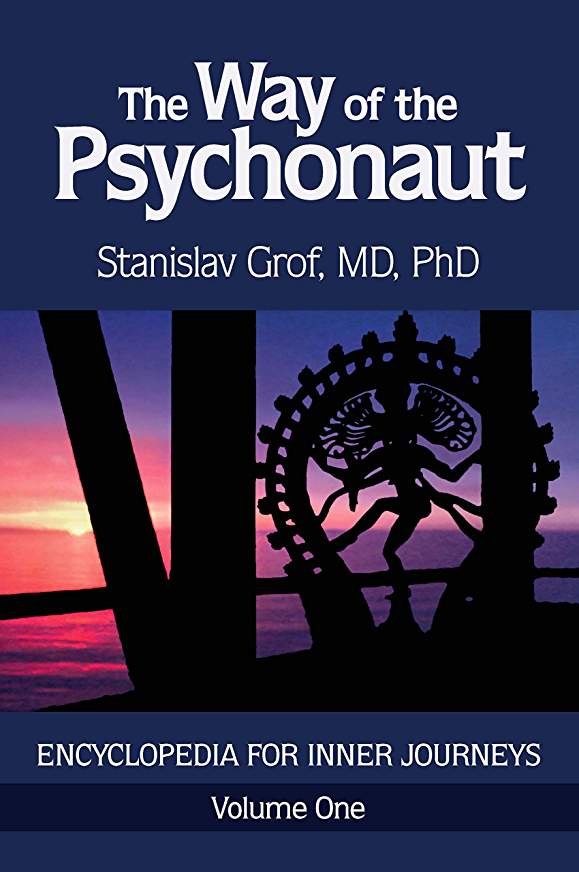
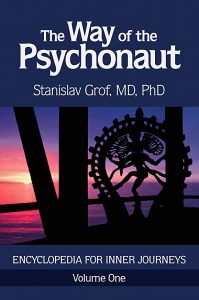



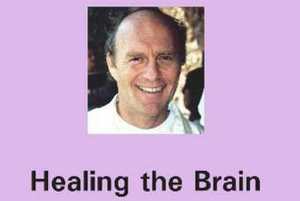

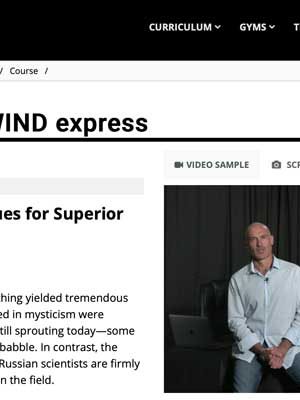

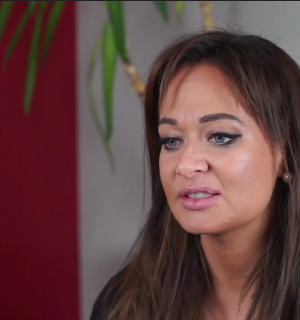
Reviews
There are no reviews yet.